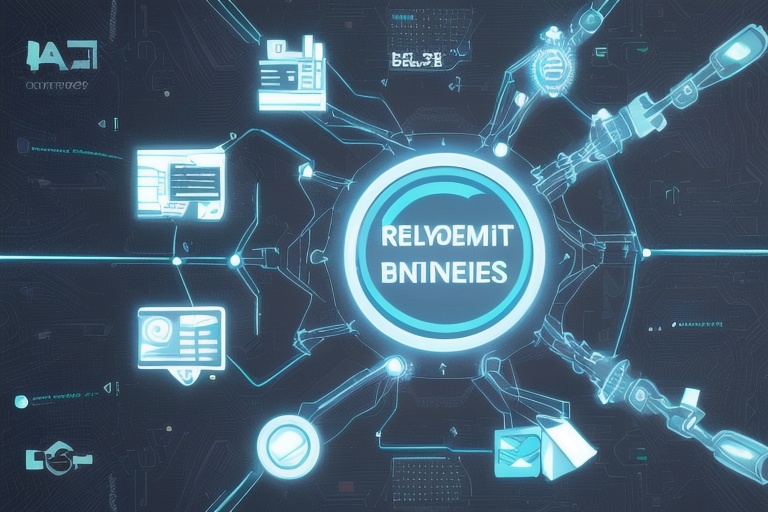Artificial Intelligence (AI): A Modern Revolution
Artificial Intelligence (AI): A Modern Revolution
Artificial intelligence (AI) has emerged as a transformative force in the modern world, reshaping the landscape of technology and influencing various facets of our lives. With visionaries like Elon Musk suggesting that AI may even surpass human intelligence in the foreseeable future, the importance of understanding this powerful field cannot be overstated. As AI seamlessly integrates into our daily experiences, it commands a growing presence—from algorithms that tailor our online shopping experience to digital assistants like Siri and Alexa, enhancing our productivity.
The Pervasiveness of AI in Daily Life
It’s hard to deny the ubiquity of AI in today's technological ecosystem. AI systems are at the core of numerous consumer technologies, and their applications range from AI-powered safety features in automobiles to smart thermostats that learn our preferences and adjust our home environments for optimal energy use. This vast integration of AI serves as a harbinger of the future where interaction with intelligent machines becomes an expected norm.
A Promising Career Prospect
Considering the rapid development and adoption of AI, the labor market is responding accordingly. According to the Bureau of Labor Statistics, the field of computer and information technology is poised to experience a 15% job growth from 2021 to 2031— a testament to the burgeoning demand for professionals knowledgeable in AI. For those contemplating a career pivot or enhancement in this dynamic domain, there is no better time than now to start that journey.
Pathways to AI Mastery
As interest in AI surges, so does the availability of educational options tailored to cultivating expertise in this area. From online courses to specialized degree programs, the landscape of AI education is both diverse and accessible.
Online Courses: Flexibility and Practical Application
Online learning platforms are a popular choice for beginners and professionals alike, offering a balance between flexibility and comprehensive coverage of AI essentials. Reputable institutions host courses that provide beginners with a solid foundation in AI concepts, complemented by hands-on projects to foster real-world expertise. Tools and technologies such as Python, IBM’s Watson AI, OpenCV, and various APIs are commonly at the forefront of these learning experiences.
Data Science Bootcamps: Intensity and Focus
For those seeking a more concentrated and immersive form of study, data science bootcamps emphasize machine learning—a cornerstone of AI. These programs are designed to equip students with the critical skills to develop AI models and decipher complex data in a condensed time frame. The bootcamps often culminate in practical projects, which can provide learners with a competitive edge in the AI job market due to their emphasis on real-world application.
Academic Degree Programs: Depth and Breadth of Knowledge
For a deeper exploration of AI, prospective students may consider pursuing bachelor’s or master’s degree programs focusing on artificial intelligence. These academic courses delve into AI theories and explore specialized areas, including natural language processing, computer vision, and robotics. A degree in AI not only solidifies one's theoretical understanding but also opens doors to research and development opportunities within the field.
Understanding AI Fundamentals
At the core of AI is the concept of machines learning from data, performing tasks autonomously, and improving over time through experience. This encompasses a plethora of techniques and approaches, such as machine learning, data processing, and neural networks, which enable machines to solve problems and make decisions. Practical manifestations of AI are already part of our daily interactions, as exhibited by virtual assistants like Siri and Alexa, and predictive chatbots that generate word suggestions based on contextual cues.
Ethical Considerations and Societal Impact
As AI continues to advance, understanding its ethical dimensions and societal ramifications is paramount. The field grapples with challenges, including algorithmic biases and the potential for automation to displace certain job roles. As such, professionals and enthusiasts entering the AI space must stay informed about these issues and foster practices that support responsible and equitable AI development.
Embrace the AI Revolution
The AI revolution is redefining industry after industry, altering traditional ways of living and working. As the proliferation of smart, AI-assisted technology continues, the demand for skilled AI practitioners is escalating. The plethora of educational opportunities ranging from online coursework to academic degrees equips individuals with the means to learn, adapt, and excel in this field. Acquiring expertise in AI and its underlying technologies not only unlocks a realm of possibilities but also enables one to significantly contribute to the evolution and responsible stewardship of this ever-evolving discipline.
Information for this article was gathered from the following source.




